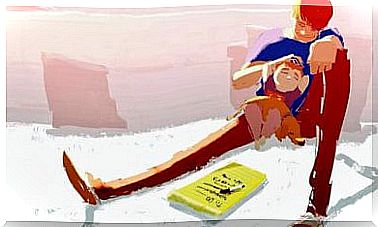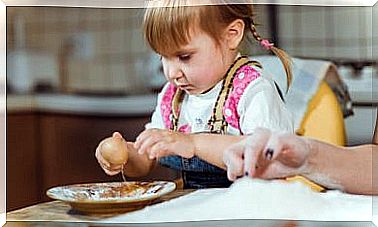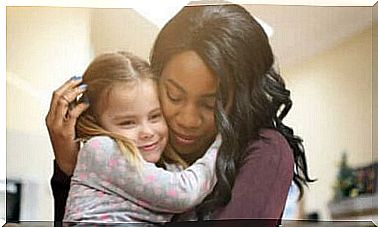Teach Your Child Not To Hold A Grudge
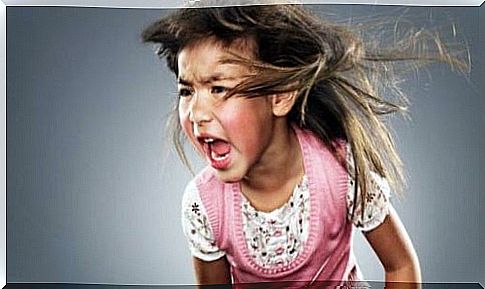
How can someone be happy with a strong grudge? Is revenge as sweet as everyone claims? The person who lets himself be dominated by rancor is like the fish that bites its hook: now it is something else that controls it. Don’t be vindictive, how can you do it? Teach your child not to hold a grudge. How? We help you with this article.
If they asked you for an opinion, would you say that fire is good or bad? “It depends,” you might reply. On a cold winter night in front of a fireplace, you’d probably say fire is a good thing. But that same fire, if left unchecked, could spread rapidly and burn the whole house. Certainly, then, you would never think the same thing again.
Something similar happens with emotions. When expressed in a controlled way they are positive, because they can help strengthen relationships with others, among other things. But if left unchecked, they can have a disastrous effect on you and those around you. How can you teach your child not to hold a grudge?
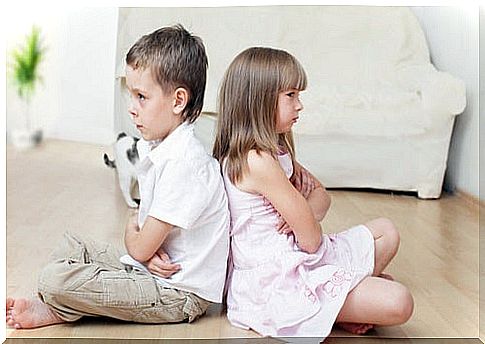
What is resentment or resentment
It is a protest or anger at an offensive action that can last for a long time and recur every time you remember that offense. This discomfort can hinder and make relations with the offender impossible. The person gets to ingrain feelings of revenge. For this reason, we feel indignation when we are offended or wronged in some way.
The point is that, by nature, our sense of good and evil requires that any injustice be redressed. For adults it is difficult not to hold a grudge, for children it can be even more harmful, as they are forming their own character and personality and are also creating bonds of friendship that, for an offense, can easily break.
Holding a grudge in your heart is like taking poison and waiting for the other person to die.
Is revenge sweet?
There are, of course, several situations in which children feel the desire for revenge, such as when they are given an insult, a slap or a push, or are victims of physical abuse, theft or other types of outrage at school.
How do they react when they suffer such injustices? Obviously, we hope that none of this will happen to our children, but comforting them by saying things like “you must not allow it” or “whoever makes a mistake pays” is not good at all.
This way of thinking only causes more pain, because vengeful acts tend to generate an endless spiral of violence. As it is sometimes said, “revenge causes more revenge”. How true these words are! Dedicating all our energy to feeding resentment harms us enormously.
How to react to offenses

- You have the right to defend yourself, but avoid being beaten. It is best to talk to your dad, mom or a teacher.
- Sometimes unfair things happen. Instead of mulling it over and filling yourself with frustration, forget about it.
- If the quarrel is between siblings, friends, classmates, remind your child that he too offends or does things that others don’t like. If he wants forgiveness, he has to start forgiving.
- Help him not to take everything personally. What appears to be a deliberate offense may be the result of a misunderstanding. Teach him to be open-minded when he is the victim of harsh words or nasty gestures.
- Teach him that forgiveness is a show of love and good cheer, and that doing so will make him happier.
- Show by your example that you do not bear a grudge and that you know how to forgive.
Many times, when there is a disagreement between two people, both are convinced that they have all the reason and that the other has all the fault. As a result, two old friends find themselves at war, so to speak.
They fight with silent weapons: one turns their back when the other passes and, if they are in a group, they do not speak to each other. From a distance, they look at each other sideways or with coldness and rancor. When they talk to each other, they do it abruptly or insult each other with words that hurt like knives.
“I don’t want to talk to that person and I don’t want to see them again.” If you have ever said these words about someone, you need to take immediate steps to repair the damage and thus set a good example for your child. Remember that a grudge will only ruin a friendship, lead to stress, emotional distress, and even heart disease.



